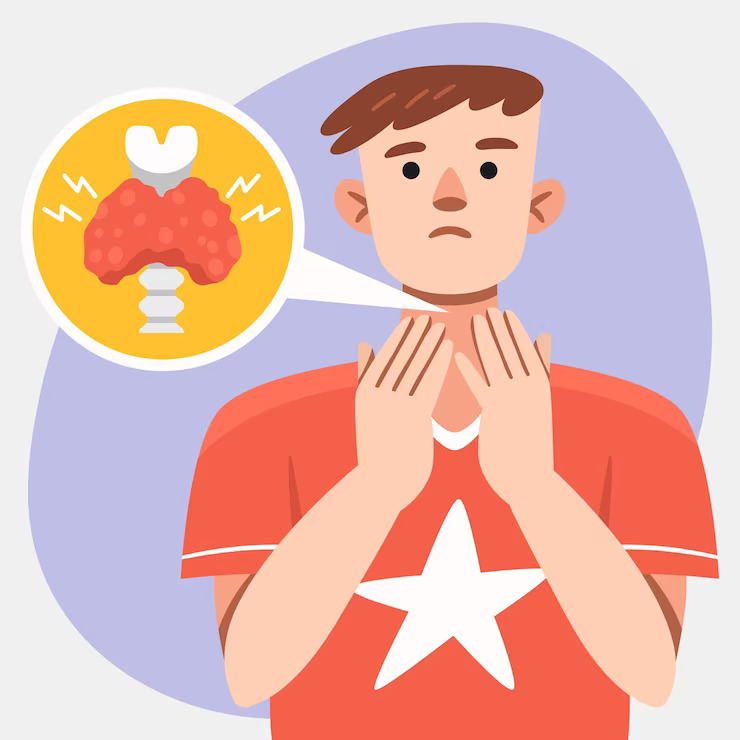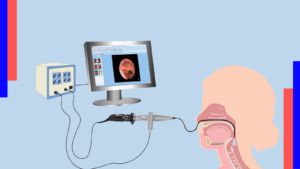Introduction:
Welcome to the comprehensive guide on finding the best tonsillitis treatment in Behala, Kolkata. Dealing with tonsillitis can be distressing, but with the right treatment, relief is within reach. This guide aims to navigate you through the options available in Behala, offering insights into effective treatment approaches and the finest healthcare providers specializing in tonsillitis treatment. In a vibrant city like Kolkata, finding the best care for tonsillitis is essential for a quick and comfortable recovery. Let’s explore the top-notch treatments available in Behala, ensuring your journey to wellness is as smooth as possible.
Best Tonsilitis Treatment in Behala , Kolkata at Dr Rahul’s Clinic
Welcome to Dr. Rahul’s Clinic, the foremost destination for exceptional tonsillitis treatment in Behala, Kolkata. Led by Dr. Rahul and a team of proficient healthcare specialists, our clinic is renowned for delivering comprehensive and personalized care to individuals seeking relief from tonsillitis-related discomfort and ailments.
At Dr. Rahul’s Clinic, we prioritize the well-being of our patients, offering an unparalleled standard of specialized care for tonsillitis. Dr. Rahul, a distinguished expert in the field, brings forth a wealth of experience and expertise in diagnosing and treating tonsillitis, ensuring a holistic approach to each patient’s unique needs.
Our clinic boasts state-of-the-art facilities equipped with cutting-edge diagnostic technologies and treatment modalities, ensuring accurate assessments and effective management of tonsillitis conditions. Dr. Rahul and our dedicated team are committed to maintaining the highest quality of healthcare, providing a warm and supportive atmosphere for every patient.
Whether you’re experiencing symptoms such as persistent sore throat, difficulty swallowing, or recurrent tonsillitis, Dr. Rahul’s Clinic offers an array of comprehensive services tailored to meet your specific requirements. We prioritize patient education and engagement, ensuring you are well-informed and actively participate in your treatment plan.
Discover the unparalleled care and expertise for tonsillitis at Dr. Rahul’s Clinic in Behala, Kolkata. Book a consultation today and take the first step towards personalized and effective tonsillitis treatment in a professional, caring environment.
Address:- P3 Biren Roy Road West, Satgram, Bakultala, Housing, Kolkata, West Bengal 700061
Emergency Tonsilitis Treatment at Dr Rahul’s Clinic in Bakultala, Behala
At Dr. Rahul’s Clinic, located in the heart of Bakultala, Behala, our dedicated team is equipped to address emergency tonsillitis cases promptly. Led by Dr. Rahul and our experienced medical professionals, we recognize the urgency and discomfort that individuals experiencing tonsillitis emergencies may face.
Our clinic offers swift and effective assessment, diagnosis, and treatment plans for emergency cases of tonsillitis. We prioritize providing immediate relief and personalized care, utilizing state-of-the-art medical facilities and advanced treatment methodologies.
Conclusion:
In times of medical emergencies related to tonsillitis, Dr. Rahul’s Clinic stands as your trusted partner in Bakultala, Behala. We are dedicated to delivering swift and comprehensive care, ensuring your comfort and well-being during urgent situations. For emergency tonsillitis cases, trust our experienced team at Dr. Rahul’s Clinic to provide immediate attention and expert care when you need it most.
What is Tonsilitis ?
 Tonsillitis is an inflammatory condition affecting the tonsils, which are two small masses of tissue located at the back of the throat, one on each side. This condition can be caused by either a viral or bacterial infection.
Tonsillitis is an inflammatory condition affecting the tonsils, which are two small masses of tissue located at the back of the throat, one on each side. This condition can be caused by either a viral or bacterial infection.
Common symptoms of tonsillitis include:
Sore throat Difficulty or pain when swallowing Swollen tonsils Redness at the back of the throat White or yellow coating on the tonsils Tender or swollen lymph nodes in the neck Fever Headache In some cases, tonsillitis can also cause bad breath, voice changes, and stomachaches, especially in children.
Tonsillitis can be contagious, particularly if caused by a viral infection. It often spreads through respiratory droplets when an infected person coughs or sneezes. Bacterial tonsillitis, such as that caused by streptococcus bacteria (commonly known as strep throat), is also contagious and requires specific antibiotic treatment.
Treatment for tonsillitis usually involves rest, drinking fluids, over-the-counter pain relievers for discomfort, and sometimes antibiotics if the cause is bacterial. In some recurrent or severe cases, surgical removal of the tonsils (tonsillectomy) might be considered. If you suspect you or someone else has tonsillitis, it’s advisable to consult a healthcare professional for an accurate diagnosis and appropriate treatment.
Tonsillitis treatment options
Tonsillitis treatment options depend on the cause of the condition, whether it’s viral or bacterial. Here are several treatment options commonly used for tonsillitis:
- Antibiotics: If the cause is bacterial (such as streptococcus), antibiotics are typically prescribed to help eliminate the infection. Penicillin or amoxicillin are common choices. It’s important to complete the full course of antibiotics as prescribed by the doctor.
- Pain Relief: Over-the-counter pain relievers like acetaminophen or ibuprofen can help alleviate throat pain and reduce fever.

- Fluids and Rest: Drinking plenty of fluids and getting adequate rest is essential for recovery. Staying hydrated helps keep the throat moist and aids the body’s immune response.
- Throat Lozenges or Sprays: Throat lozenges or sprays with soothing properties can provide temporary relief from soreness and irritation in the throat.
- Warm Saltwater Gargles: Gargling with warm salt water can help reduce swelling and discomfort in the throat.
- Corticosteroids: In some cases, corticosteroids may be prescribed to reduce inflammation and swelling in the throat.
- Tonsillectomy: For individuals who experience recurrent or severe tonsillitis, a surgical procedure known as a tonsillectomy might be recommended. This involves the removal of the tonsils. However, this is usually considered in cases of chronic tonsillitis that significantly affect a person’s quality of life or health.
- Home Remedies: Some individuals find relief from home remedies like herbal teas, humidifiers, and steam inhalation, which can help ease symptoms.
Antibiotic-based tonsillitis treatment
Antibiotic-based treatment for tonsillitis is primarily used when the condition is caused by bacteria, notably the group A Streptococcus bacteria, commonly referred to as “strep throat.” Here’s a brief overview of the antibiotic-based treatment for tonsillitis:
- Antibiotics: The most commonly prescribed antibiotics for strep throat include penicillin and amoxicillin. In cases where a person is allergic to penicillin, alternatives such as erythromycin or azithromycin might be prescribed. Antibiotics are effective in treating bacterial infections and can significantly reduce the duration and severity of symptoms.
- Complete Course: It’s crucial to complete the entire course of antibiotics as prescribed by the healthcare provider, even if symptoms improve or disappear before the medication is finished. This helps ensure the complete elimination of the infection and reduces the risk of recurrence or antibiotic resistance.
- Relief of Symptoms: Antibiotics help reduce the duration of illness and alleviate symptoms like sore throat, fever, and difficulty swallowing. They also lower the risk of potential complications related to untreated strep throat, such as rheumatic fever or kidney inflammation.
- Contagiousness: After starting the antibiotic treatment, a person with strep throat becomes less contagious. However, it’s advisable to wait for at least 24 hours after beginning antibiotics before returning to work or school to minimize the risk of spreading the infection.
It’s important to note that antibiotics are effective against bacterial infections but do not treat viral causes of tonsillitis. Overuse or inappropriate use of antibiotics can lead to antibiotic resistance, so it’s essential to take them only when prescribed by a healthcare professional and to complete the full course as directed. Always consult a doctor for a proper diagnosis and treatment plan for tonsillitis.
Best tonsillitis treatment for chronic cases
Tonsillitis that becomes chronic, characterized by recurrent or persistent episodes, might require a more comprehensive approach to manage the condition effectively. Here are some considerations for the best tonsillitis treatment in chronic cases:
- Antibiotics: If the chronic tonsillitis is due to bacterial infections, a healthcare professional may prescribe a longer or more aggressive course of antibiotics to eliminate the recurring infection.

- Tonsillectomy: For severe or frequently recurring cases, a tonsillectomy (surgical removal of the tonsils) might be recommended. This is a common treatment for chronic tonsillitis, especially when the condition significantly affects quality of life, causes obstructive sleep apnea, or leads to other complications.
- Corticosteroids: In some cases, short-term use of corticosteroids might be recommended to reduce inflammation and control symptoms. This is usually a temporary measure to manage acute episodes.
- Holistic Approaches: Complementary and holistic approaches, such as dietary changes, stress reduction techniques, and herbal remedies, might assist in managing symptoms and supporting the immune system.
- Immunomodulators: In certain cases where chronic tonsillitis is related to immune system imbalances, immunomodulatory treatments might be considered to help regulate the immune response.
- Regular Follow-ups: Consistent follow-ups with an ENT specialist or healthcare professional are important to monitor the condition and adjust treatment plans as needed.
- Lifestyle Modifications: Avoiding known allergens or irritants, ensuring good oral hygiene, and maintaining a healthy lifestyle may help in managing chronic tonsillitis.
The best approach for chronic tonsillitis will vary for each individual. It’s crucial to consult with an ENT specialist or healthcare provider to evaluate the specific condition, discuss treatment options, and create a tailored plan that addresses the underlying causes and symptoms effectively.
Tonsillitis treatment for children
Tonsillitis in children often requires a different approach compared to adults due to their developing immune systems and unique medical considerations. Treatment for tonsillitis in children might involve various strategies:
- Rest and Hydration: Encourage your child to rest and drink plenty of fluids to stay hydrated, which helps in relieving symptoms and supports the immune system.
- Pain Management: Over-the-counter pain relievers suitable for children, like acetaminophen or ibuprofen, can help alleviate throat pain and reduce fever. Always follow the recommended dosage based on your child’s age and weight.
- Antibiotics: If the tonsillitis is caused by a bacterial infection (such as strep throat), the pediatrician might prescribe a course of antibiotics specifically formulated for children.
- Warm Fluids: Encourage your child to drink warm liquids like soups or herbal teas to soothe the throat.
- Gargling: Older children can do saltwater gargles (if they can do it safely without swallowing the water) to help reduce throat discomfort.
- Avoid Irritants: Discourage your child from exposure to irritants like smoke or polluted air, which can further aggravate the condition.
- Humidifier: Using a cool-mist humidifier in your child’s room can help add moisture to the air and ease throat dryness and discomfort.
- Close Monitoring: Keep a close eye on your child’s symptoms and if there’s no improvement or if the symptoms worsen, seek medical advice promptly.
Always consult with a pediatrician or healthcare professional before administering any treatment to a child with tonsillitis. They can provide an accurate diagnosis and recommend the most suitable treatment plan based on the child’s age, the severity of the condition, and individual health factors.
Home Remedies during Tonsilitis
Here are some home remedies that may help alleviate discomfort and support recovery during tonsillitis:
- Saltwater Gargle: Gargling with warm salt water can help reduce throat inflammation and ease discomfort. Mix a half-teaspoon of salt in a glass of warm water and gargle several times a day.
- Stay Hydrated: Drink plenty of fluids, such as water, herbal teas, warm broths, or soothing beverages, to keep the throat moist and prevent dehydration.
- Rest: Adequate rest is essential for your body to recover and heal. Take it easy and get plenty of sleep to support your immune system.
- Cool Mist Humidifier: Using a humidifier in your room can add moisture to the air and help soothe a dry or sore throat.
- Honey and Lemon: A mixture of warm water, honey, and lemon can provide relief. Honey’s soothing properties and lemon’s vitamin C content can help soothe the throat.
- Soft Foods: Stick to easy-to-swallow, soft foods that are gentle on the throat, like soups, yogurt, smoothies, and mashed vegetables.
- Herbal Teas: Herbal teas with ingredients like ginger, chamomile, or licorice root may have soothing properties for the throat.
- Avoid Irritants: Avoid smoking, exposure to secondhand smoke, and other throat irritants that may exacerbate the condition.
- Over-the-Counter Pain Relief: Over-the-counter pain relievers such as acetaminophen or ibuprofen can help manage discomfort and reduce fever.
- Marshmallow Root: Marshmallow root has been traditionally used to soothe the throat. Consider using it in tea or as a supplement after consulting a healthcare professional.
FAQs
here are some frequently asked questions (FAQs) about tonsillitis treatment:
- What are the treatment options for tonsillitis?
- Treatment options include rest, fluids, pain relief (such as acetaminophen or ibuprofen), antibiotics for bacterial infections, surgical removal of tonsils (tonsillectomy), and home remedies like saltwater gargles and throat lozenges.
- When should I see a doctor for tonsillitis?
- It’s advisable to see a doctor if you have severe or persistent symptoms, difficulty breathing or swallowing, or a high fever. If symptoms worsen or do not improve within a few days, seeking medical advice is recommended.
- Are antibiotics always necessary for tonsillitis?
- Antibiotics are prescribed if the tonsillitis is caused by bacteria, such as strep throat. However, viral tonsillitis does not respond to antibiotics, and in such cases, treatment focuses on managing symptoms.
- Can tonsillitis be treated at home?
- Mild cases can be managed at home with rest, fluids, over-the-counter pain relievers, warm fluids, and home remedies like saltwater gargles. However, severe or persistent cases may require medical attention.
- How long does tonsillitis last?
- The duration of tonsillitis depends on the cause. Viral tonsillitis usually resolves within a week, while bacterial tonsillitis may improve within a few days of antibiotic treatment. Chronic tonsillitis can persist or recur over an extended period.
- Is a tonsillectomy the only solution for chronic tonsillitis?
- A tonsillectomy, or surgical removal of the tonsils, might be recommended for severe or recurrent cases of chronic tonsillitis. However, it is not always the first or only solution and is typically considered after other treatments have failed or if the condition significantly affects a person’s health.
- What can I do to prevent tonsillitis?
- Good hygiene practices, such as regular handwashing, avoiding close contact with individuals with respiratory infections, and maintaining a healthy lifestyle, can help prevent the spread of infections that cause tonsillitis.
- What makes a top tonsillitis specialist ?
- A top tonsillitis specialist, also known as an otolaryngologist (ENT doctor), is characterized by several qualities and qualifications that set them apart in effectively diagnosing and treating tonsillitis and related conditions. Here are some key attributes of a top tonsillitis specialist:
- Expertise and Experience: A top specialist typically possesses extensive experience and expertise in treating various throat and tonsil-related conditions. They may have years of practice and a proven track record in diagnosing and managing tonsillitis cases.
- Specialized Training: These specialists have completed advanced education and training in otolaryngology, focusing on the ear, nose, and throat (ENT). They’re knowledgeable about various conditions affecting the throat and tonsils.
- Accurate Diagnosis: A top specialist is skilled in accurately diagnosing tonsillitis by conducting a thorough examination of symptoms, medical history, and, if necessary, using tests such as throat swabs to determine the cause—whether viral or bacterial.
- Compassionate Care: They demonstrate a compassionate and patient-centered approach, providing clear explanations, addressing concerns, and ensuring patients are well-informed and comfortable throughout their treatment.
- Customized Treatment Plans: A top tonsillitis specialist creates personalized treatment plans tailored to the specific needs of the patient. They consider various treatment options, whether medicinal, surgical (such as tonsillectomy), or holistic approaches, based on the individual’s condition.
- Continuous Learning and Research: Leading specialists are committed to staying updated with the latest advancements and treatments in their field. They often engage in ongoing education and research to provide the best care possible.
- Strong Communication and Collaboration: Top specialists work closely with a team of healthcare professionals, including primary care physicians, nurses, and other specialists, ensuring a collaborative approach to patient care.
- Good Reputation and Patient Feedback: Patients often share positive reviews and experiences about their treatment with top specialists, leading to a solid reputation within the medical community.
Seeking a top tonsillitis specialist involves considering these factors to ensure receiving the best possible care for the condition. Always consult with your healthcare provider for guidance on choosing the right specialist for your individual health needs.
Conclusion:
As you conclude this guide, equipped with valuable insights on the best tonsillitis treatment available in Behala, Kolkata, remember that your health is a priority. Choosing the right treatment provider can make a significant difference in your journey toward a tonsillitis-free life. Whether it’s the expert care, advanced treatment options, or a caring environment you seek, the providers in Behala, Kolkata, are committed to offering top-tier care for your tonsillitis needs. Trust in their expertise and tailored treatment approaches to pave the way for a healthier, tonsillitis-free future. Your road to recovery begins with the best care available in Behala, Kolkata.



